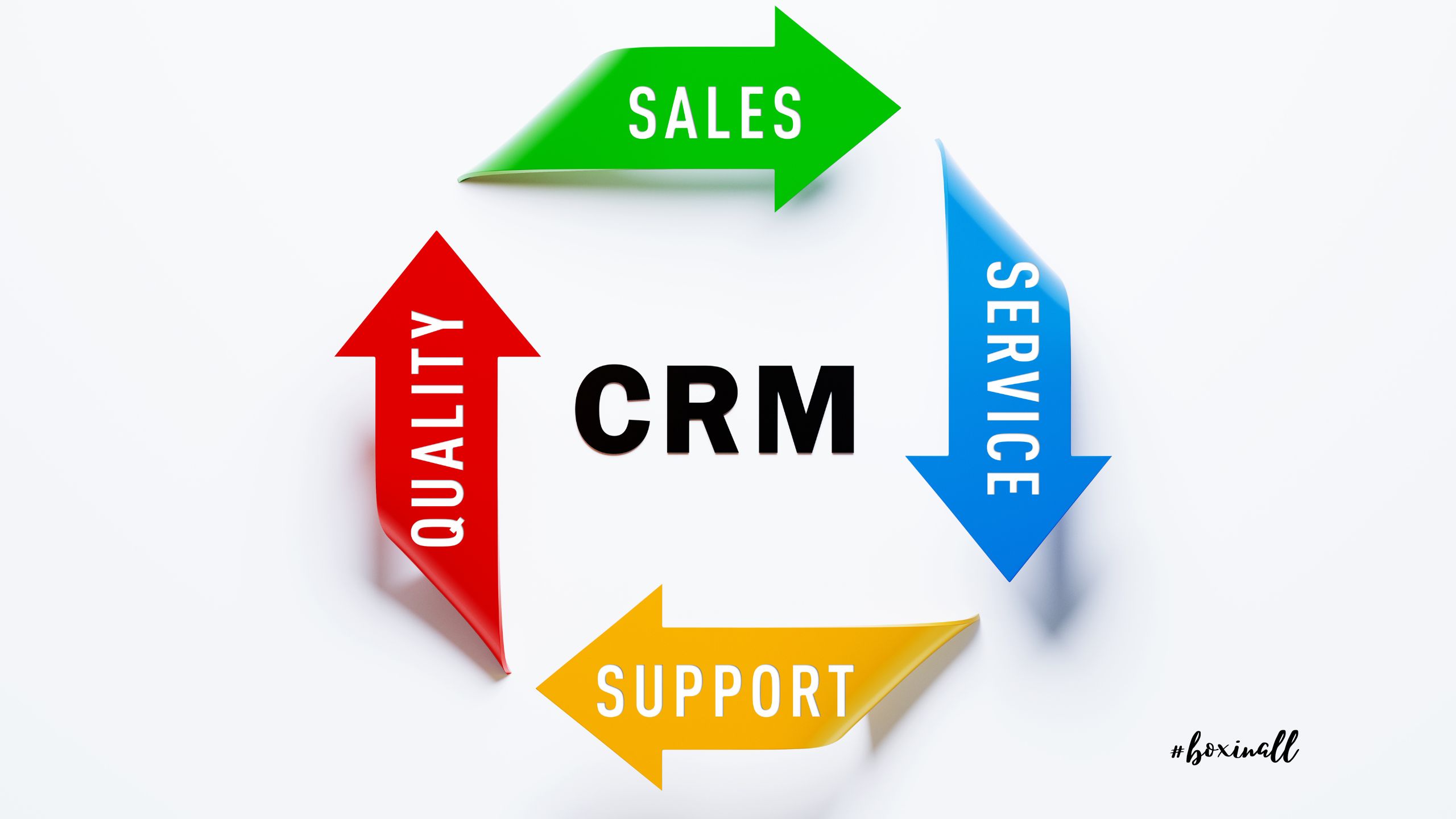In the dynamic landscape of modern business, Customer Relationship Management (CRM) has emerged as a crucial tool for enterprises to build and maintain strong relationships with their customers. Enterprise CRM goes beyond basic customer management to provide a comprehensive solution that integrates various aspects of customer interactions, sales, marketing, and service. In this blog, we will delve into the benefits, features, platforms, and implementation process of Enterprise CRM to help businesses harness its full potential.
Benefits of Enterprise CRM:
- Enhanced Customer Relationships: Enterprise CRM enables businesses to gain a 360-degree view of their customers, allowing for personalized interactions and targeted marketing campaigns.
- Improved Sales Performance: By streamlining sales processes, tracking leads, and analyzing sales data, Enterprise CRM helps in boosting sales efficiency and closing deals faster.
- Efficient Marketing Campaigns: With detailed customer insights and segmentation capabilities, Enterprise CRM empowers businesses to create targeted marketing campaigns that yield higher ROI.
- Enhanced Customer Service: By centralizing customer data and interactions, Enterprise CRM enables seamless customer service delivery, leading to improved customer satisfaction and loyalty.
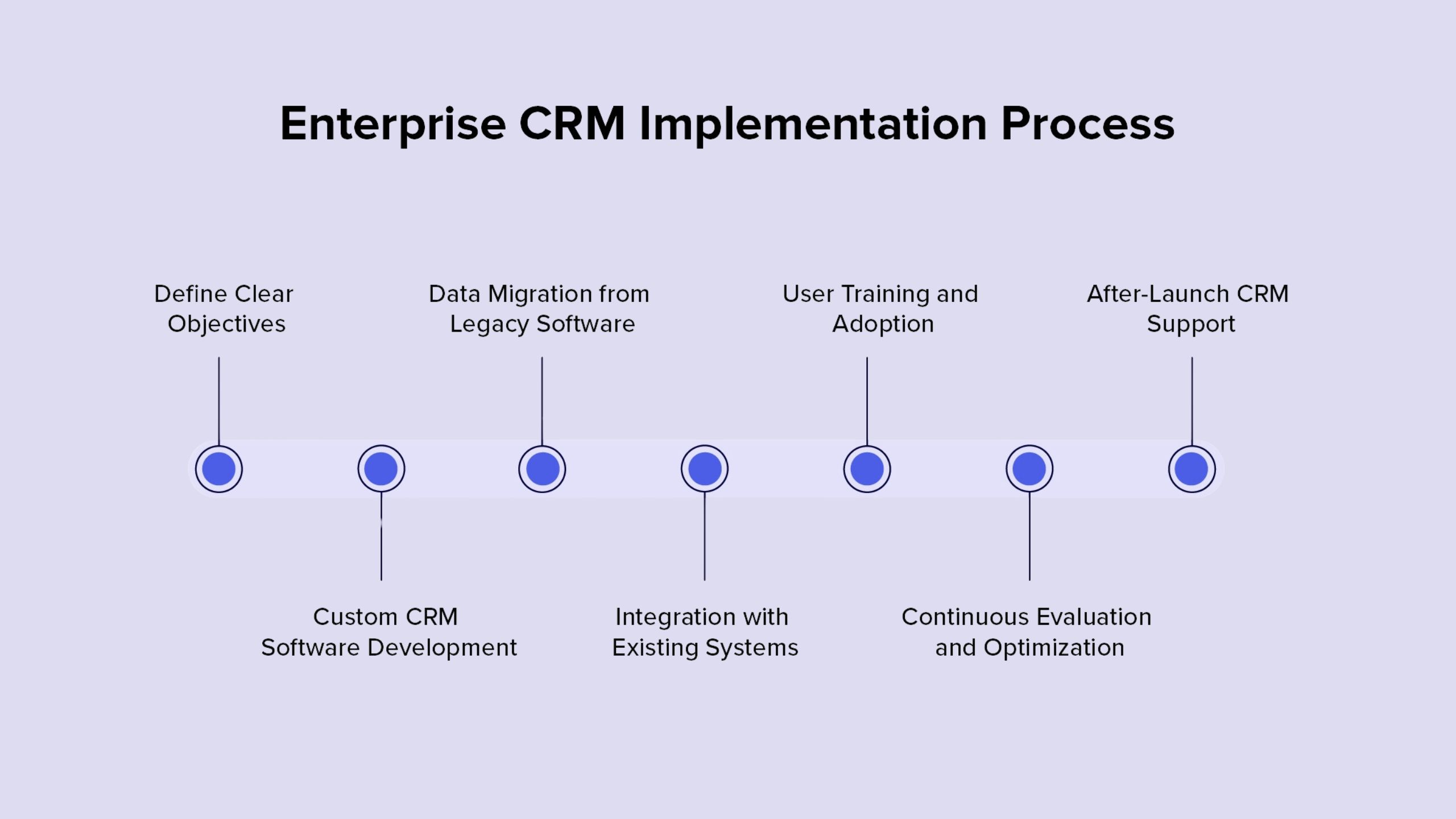
Features of Enterprise CRM:
- Customer Data Management: Centralized storage of customer data including contact information, purchase history, preferences, and interactions.
- Sales Automation: Automation of sales processes such as lead management, opportunity tracking, and pipeline management.
- Marketing Automation: Tools for creating, executing, and analyzing marketing campaigns across multiple channels.
- Customer Service Management: Ticketing system, knowledge base, and communication tools for efficient customer support.
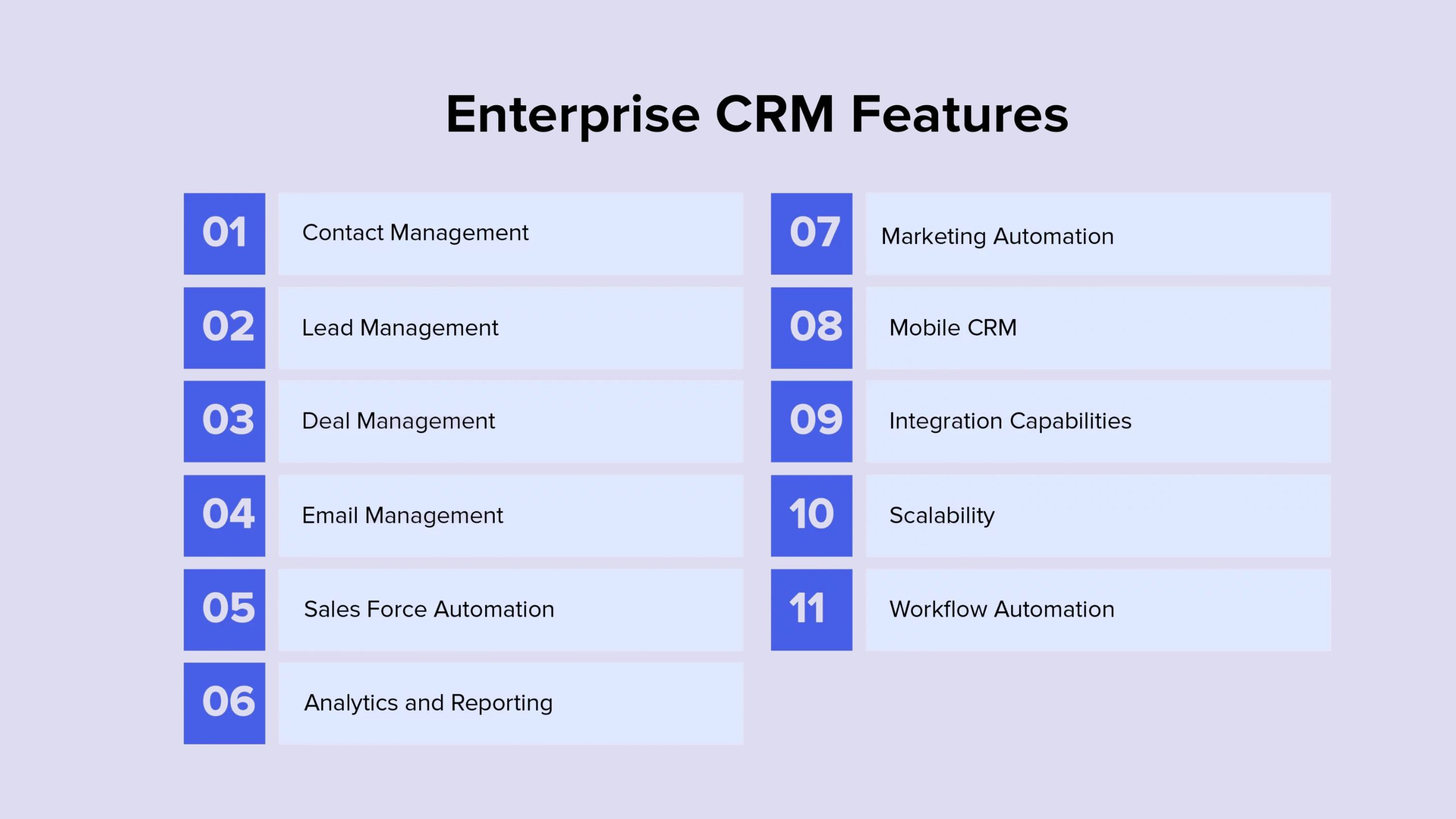
Popular Enterprise CRM Platforms:
- Salesforce: A cloud-based CRM platform known for its scalability, customization options, and extensive third-party integrations.
- Microsoft Dynamics 365: Offers a comprehensive suite of CRM and ERP applications, with seamless integration with Microsoft products.
- Oracle CRM: Provides a robust CRM solution with advanced analytics, social CRM capabilities, and industry-specific modules.
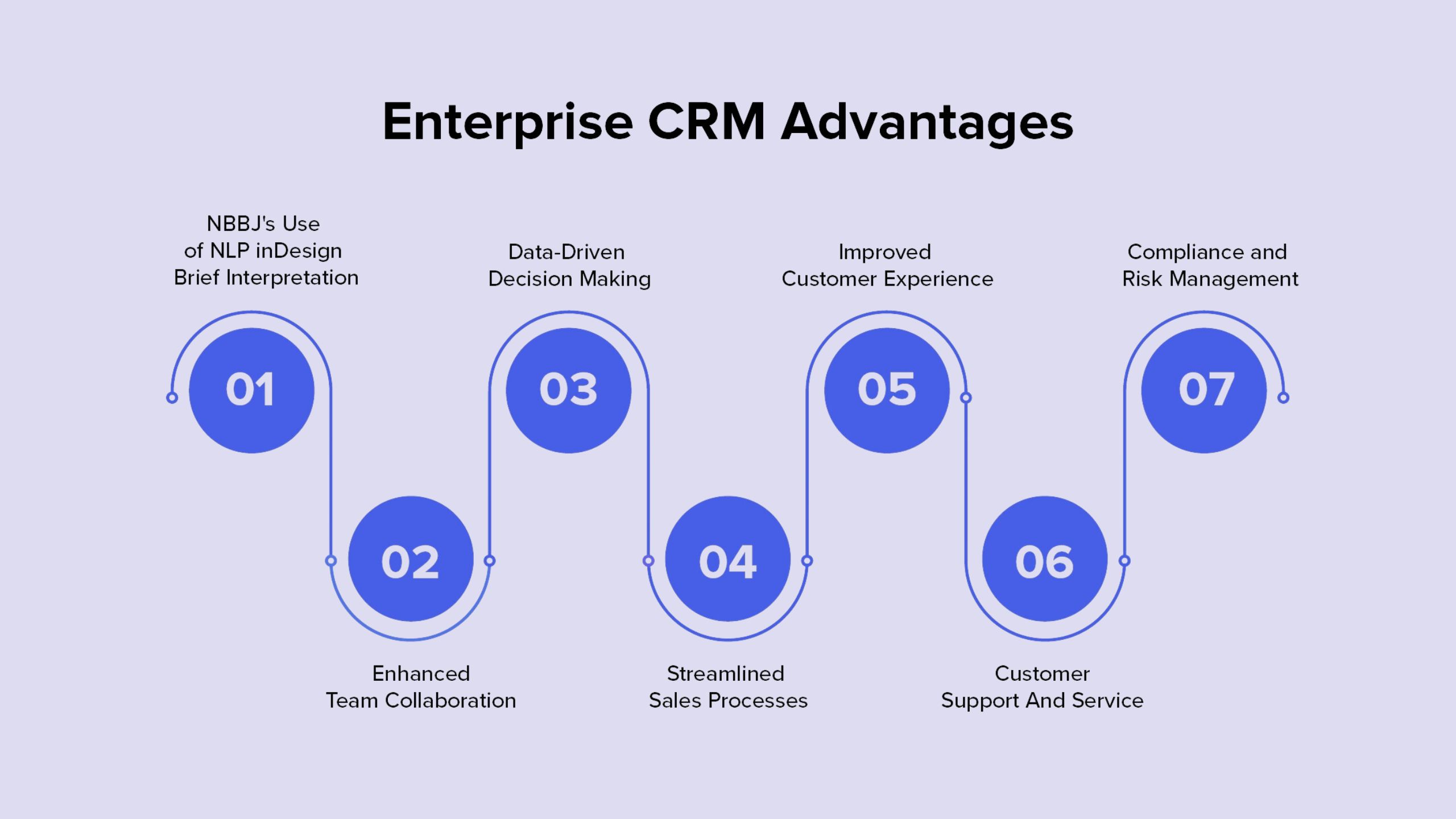
Implementation Process of Enterprise CRM:
- Assessment and Planning: Identify business requirements, goals, and key stakeholders to create a roadmap for CRM implementation.
- Platform Selection: Choose the right CRM platform based on business needs, scalability, budget, and integration capabilities.
- Customization and Configuration: Tailor the CRM system to align with business processes, data fields, workflows, and reporting requirements.
- Data Migration and Integration: Transfer existing data to the CRM system and integrate with other business applications for seamless data flow.
- Training and Adoption: Provide comprehensive training to users on how to use the CRM system effectively and encourage adoption across the organization.
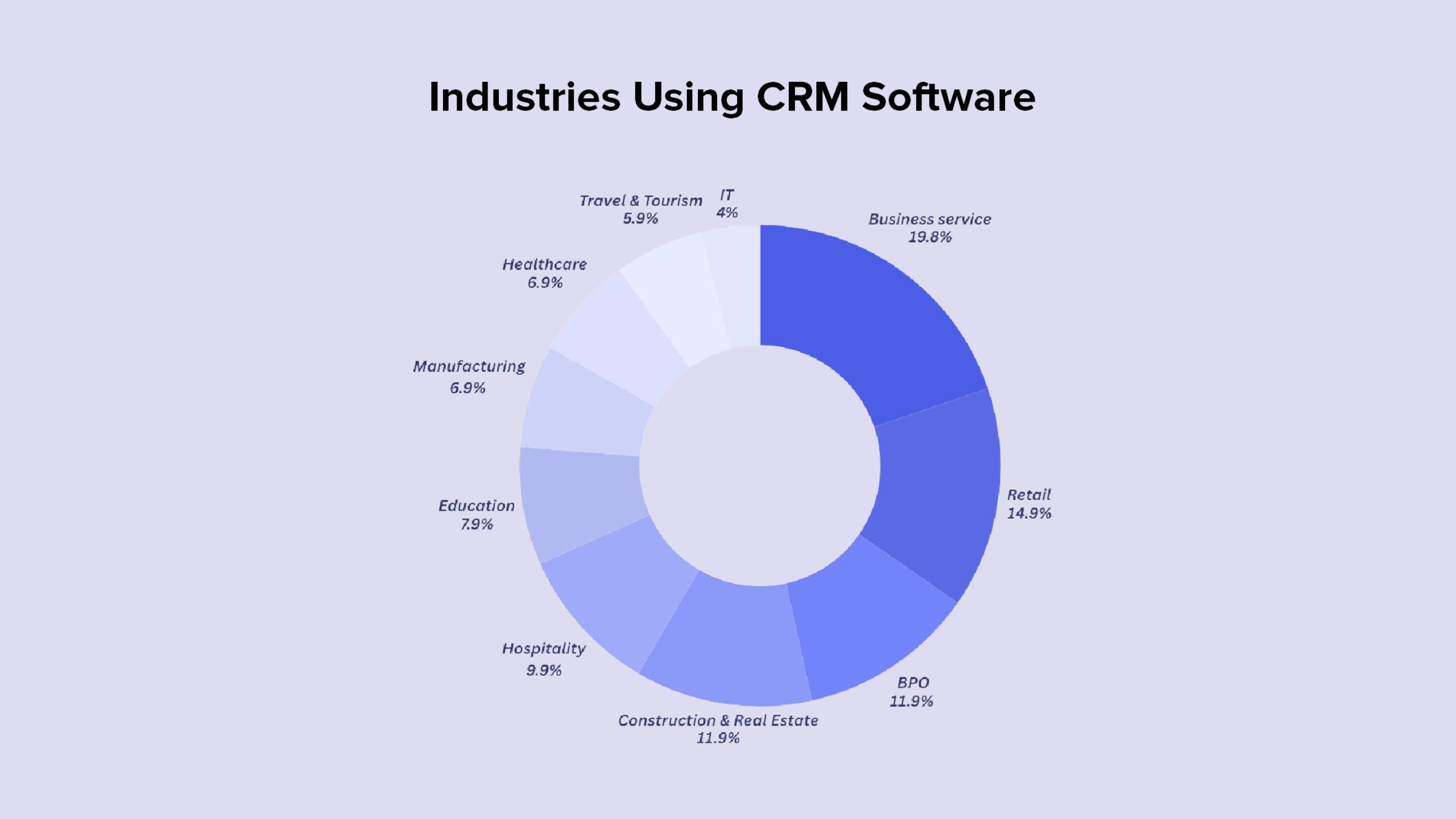
In conclusion, Enterprise CRM is a powerful tool that can revolutionize how businesses engage with their customers, drive sales, and enhance overall operational efficiency. By understanding the benefits, features, platforms, and implementation process of Enterprise CRM, businesses can unlock its full potential and stay ahead in today’s competitive market.

